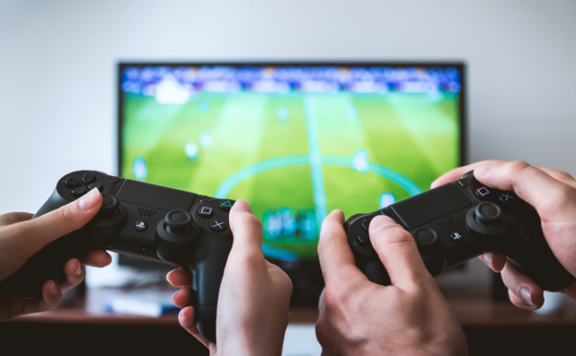Even though many people believe gaming is harmful to children, scientists assume that video games may be a facilitatory educational aid if used right. Today, so-called “edutainment” tools are commonly applied by educators who want to engage children in learning experiences. Modern teachers realize the advantages of playing video games, so they encourage students to make the most out of this fun activity. What’s more, multiple studies have revealed various benefits of playing games for students. Let’s have a closer look at some of them below.
Critical thinking stimulation
Apart from the entertainment value, video games can address specific learning problems and teach certain cognitive skills. Similar to studying apps, video games can stimulate critical thinking. According to the research conducted at the University of Glasgow, young people became more successful at college because video games encouraged their critical thinking and reflective learning. Since gaming requires finding multiple ways of accomplishing a task, it can positively affect the education process.
Improved tech skills
Video games typically make children interested in up-to-date technology and help them develop technical skills. Furthermore, gaming can help overcome technophobia, which is the fear or just dislike of advanced technology or complex devices. As males are usually more avid IT users, playing video games at school may also eliminate gender imbalance in technology use in the long run.
Better performance in creativity exercises
Iowa State University conducted a study revealing that playing video games can boost creativity. The research compared the effect of playing Minecraft for 40 minutes, with or without instruction, to watching TV or playing a race car video game. After doing a certain activity, participants were asked to complete some creativity-testing tasks, for instance, to draw a creature differing from humans as much as possible. The scientists found out that individuals who played Minecraft without instruction were much more creative than others.
Enhanced life skills crucial for personal statement writing
Obviously, multiplayer games require good communication among participants. Hence, researchers from Scotland decided to check whether gaming can sharpen this skill. Matthew Barr, who conducted the study at the University of Glasgow, measured students’ talking and listening skills and found out that they significantly improved after two months of playing video games regularly. He has proved that gaming in a group can boost not only communication skills but resourcefulness and adaptability as well. According to the leading personal statement service in London, these are essential skills needed by young people to enter a top university and be a successful student. Hence, one should pay attention to their development in various ways, including fun gaming activities.

Reduced reaction time
To succeed in playing action video games, one must have rapid processing of sensory information. Players need to make quick decisions and take prompt action. Video gaming requires doing things at a far greater pace than is typical in everyday life. Studies show that the brain of players collects visual and auditory information more efficiently compared to individuals who don’t like gaming. Therefore, avid gamers react more readily to their environment.
Faster problem-solving in the real world
Jane McGonigal stated in her TedTalk that gamers must be viewed as better out-of-the-box problem-solvers than those who don’t play video games. Just imagine, they spend roughly 80% of their time failing while playing. So the more they fail, the harder they try to fix their mistakes and complete the mission. This develops their desire to sort out serious problems and helps them deal with daily issues more efficiently.
Developed visuospatial competencies
While playing video games, one has a chance to exercise their sensory, perceptual, and cognitive abilities. According to the study conducted by Jing Feng and Ian Spence, individuals playing action video games tend to demonstrate high results in spatial tasks. Other studies have revealed that video games can improve such functions as spatial selective attention, spatial perceptual resolution, contrast sensitivity, and mental rotation.
Final thoughts
Despite the mentioned benefits of video games, young people should be careful with them. In 2014, Andrew Przybylski published his research establishing the time children should devote to video gaming. This psychologist concluded that those who spent less than an hour playing were more emotionally stable than those who played for around three hours a day. Also, children engaged in playing a few hours a day developed social problems. Hence, moderation is key if your goal is to improve learning efficiency.
Author’s BIO
Robert Everett is an academic coach and researcher. He is focused on studying the most effective ways of gaining knowledge that drives success to students at college. As a gamer, Robert believes that playing video games can be one of the numerous tools helping with learning.







